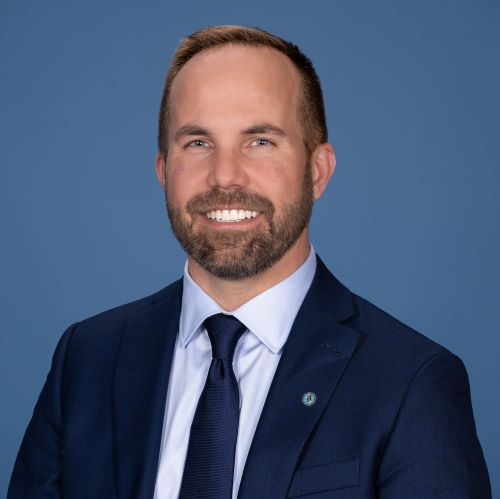.png?sfvrsn=188a2abf_0)
How San Diego Balanced Data, People, and Process to Launch its First Solid Waste Fee in Over 100 Years
November 14, 2025 - | Room B230-B232
Speakers
-
Jeremy Bauer
Assistant Director
City of San Diego Environmental Services Department -
Jennefer Klennert
North Central Solid Waste Planning Lead
HDR
The City of San Diego voters approved Measure B on November 8, 2022, amending the People’s Ordinance to remove a long-standing ban that prevented San Diego from charging a fee for city-provided trash, recycling, and organics services, allowing the city to charge a fee for the solid waste collection services it provides for the first time in over 100 years. The passage of Measure B started a multi-year process of confirming eligible customers, undertaking outreach, evaluating current operational conditions, proposing new service levels, and defining cost recovery fees for these services.
One of the first steps was an operational efficiency analysis to identify opportunities for improvements in the efficiency and effectiveness of the city’s collection services. The city wanted a data-driven process to inform technology and process improvements to achieve the Environmental Service Department’s goal of providing first-in-class sustainable collection services. Jennefer Klennert, planning lead, HDR, and Jeremy Bauer, assistant director, San Diego Environmental Services Department, will share the process that was followed to:
- Review more than 150 documents,
- Analyze millions of lines of data,
- Determine current performance indicators,
- Complete more than 87 interviews,
- Conduct over 500 hours of on-site observations including employee meetings, workflows, and deskside and vehicle observations, and
- Benchmark performance.
The seven weeks of on-site observation was followed by a series of three, four-hour workshops with ESD leadership to gain input and agreement on what will be necessary to provide services once Measure B is implemented. This presentation will show how key performance indicators and data analysis were overlaid with people (employees and management at every level of the organization), facilities, and equipment to provide an actionable and realistic view of the current state of the city’s service and potential options for future services under Measure B. Collections and operations, fleet owners and managers, routing and GIS experts, elected official liaisons, management consultants, and those that wear many hats will walk away with new ideas and tools to help their solid waste campaigns succeed.
About the Speakers

Jeremy Bauer
Assistant Director | City of San Diego Environmental Services Department
Jeremy Bauer has served as an Assistant Director of the City of San Diego Environmental Services Department from December 2023. Since joining the Department, he has led robust outreach and engagement throughout the City, leading to the development and rollout of San Diego’s first ever fee for City-provided residential trash and recycling collection services. The new fee provides a sustainable funding source for safe and reliable collection services and relieves the City’s General Fund that had historically covered most of the cost of collection services provided by Department. In his role, Jeremy also provides leadership support for the Collection Services Division, home of the Department’s sanitation drivers, and the Waste Reduction Division, which advances the City’s diversion goals through education and enforcement and coordinates with private waste haulers operating in the City.
Before his work in local government in San Diego, Jeremy served over 18 years with the Federal Government, including 2 years as a Peace Corps volunteer in Nicaragua and more than 16 years with the U.S. Environmental Protection Agency, most recently as a Deputy Director of the U.S. EPA Region 9 Tribal, Intergovernmental, and Policy Division, focused on advancing environmental justice for communities throughout the region and administering technical and financial assistance programs for federally-recognized tribes, U.S.-affiliated Pacific Islands, and communities along the U.S.-Mexico Border. Jeremy holds a bachelor’s degree in environmental geosciences from the University of Notre Dame and a master’s degree in environmental engineering from Virginia Tech.

Jennefer Klennert
North Central Solid Waste Planning Lead | HDR
Jennefer Klennert, North Central Solid Waste Planning Lead at HDR, has over 33 years of industry experience and a strong academic foundation in environmental sciences and business administration. She leads a dynamic team of collections and operations professionals focused on advancing solid waste, recycling, and organics programs. With a strong emphasis on safety and operational efficiency, she brings deep expertise in building impactful public-private partnerships that drive positive social, environmental, and economic outcomes. A go-to resource on best practices in contracting and the future of waste management, she is also at the forefront of exploring innovative technologies and alternative materials management strategies, reflecting the industry’s shift from waste to resources management. Her work supports communities and organizations in navigating the evolving landscape of sustainable materials management.






